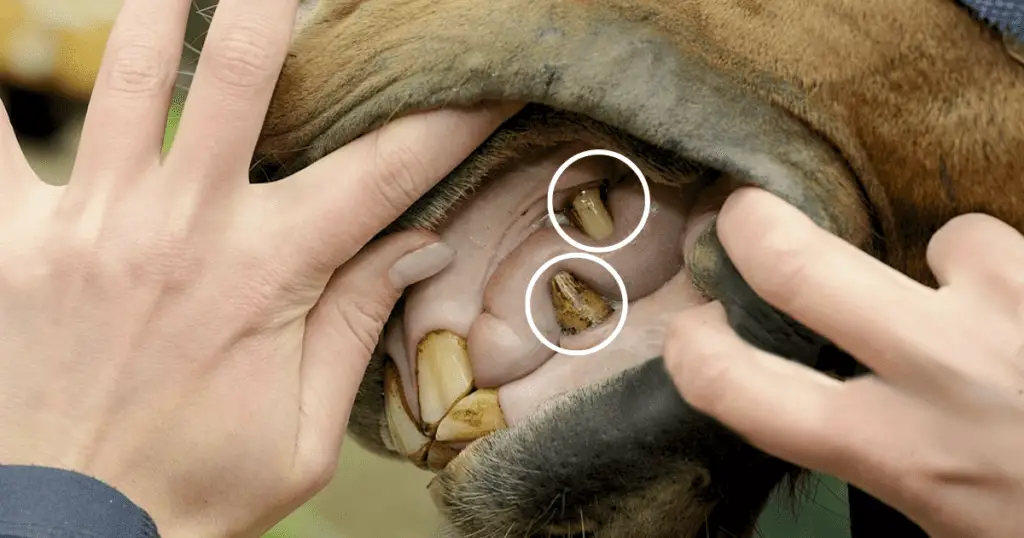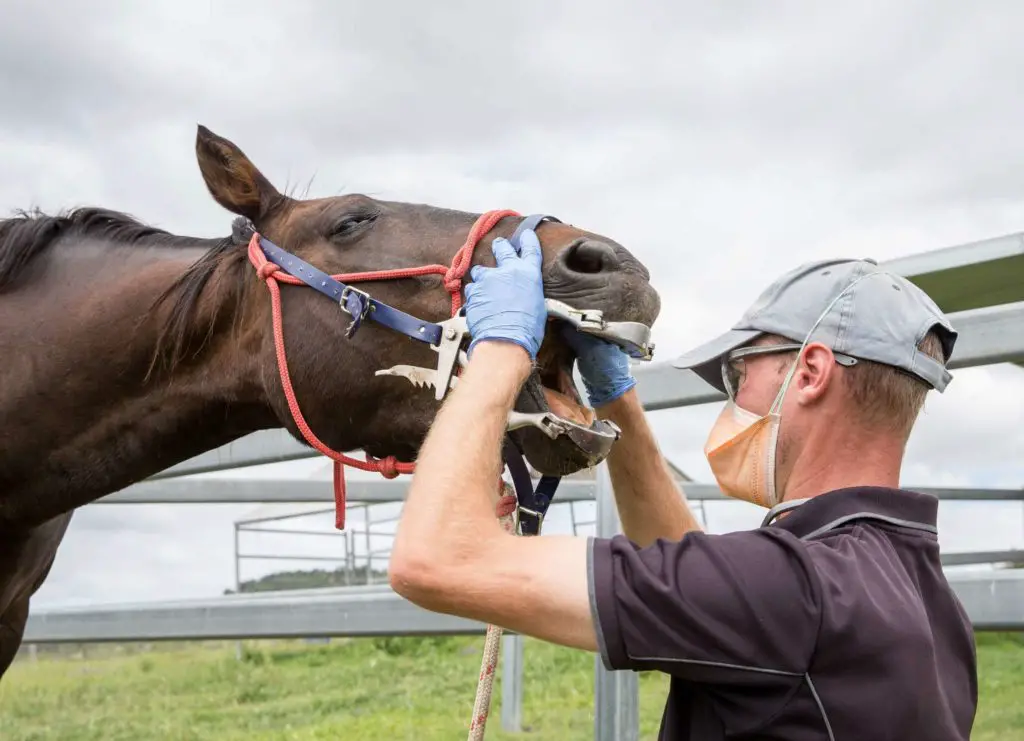
Many equine veterinarians agree the first dental should take place between six and 12 months of age. At Exclusively Equine, we usually conduct your horse’s first dental examination at nine to twelve months of age, unless dental problems are encountered earlier.
There are many reasons that dental care begins early in your horse’s life, which we’ll explore in this article.
Early Dental Care
One reason in particular is that your foal is born with teeth and they begin erupting into the mouth during the first week of life. This means they can start causing dental problems from a very early age if not monitored and managed.
As a horse owner, you have an important role to play in your foal’s dental health. Following birth, you should examine your foal’s mouth and look for any signs of abnormality. If you notice anything unusual, consult your veterinarian so dental problems can be treated early.
Wolf Teeth and Deciduous Teeth
Another consideration is the changes that take place inside your horse’s mouth during their first year of life, including the eruption of wolf teeth and the shedding of deciduous teeth.
Between five and 12 months of age, wolf teeth begin to erupt into the mouth, and they may vary in terms of size, shape and location. At times, wolf teeth need to be professionally extracted as they come into contact with the bit during your foal’s education. Click here to learn more.
Over the first few years of life, most young horses will also shed an average of 24 deciduous, or baby, teeth to make way for their adult teeth. A whopping 36 to 44 adult teeth will erupt over the following years, so there’s a lot of activity taking place that can lead to dental problems.
Early Education and Training
Lastly, young horses are bred for pleasure or performance and, as such, will require training in-hand and under-saddle during their first years of life. With professional dental care, dental problems can be avoided that would otherwise interrupt their progress.
It’s important to remember that any issues that arise during training shouldn’t be disregarded. As your horse’s mouth changes, they may experience pain or discomfort, including when first bitted. Always consider their dental health — don’t assume it’s simply a behavioural problem.



